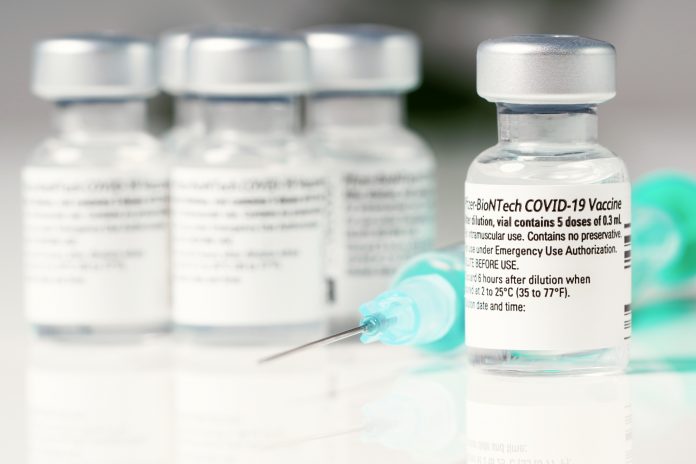An ongoing real-world study on the Israeli population finds that the Pfizer COVID vaccine is safe to use – minimal side effects were observed in over 800,000 people
In Israel, 60% of people are double-vaccinated against COVID. The Government struck a deal with Pfizer early on – to exchange population data for a guaranteed supply of the vaccine.
Currently, the Palestinian Territories are at 18% single-dosed, despite international humanitarian law attributing responsibility for Palestinian access to the vaccine to the Israeli Government. But within the Israeli population that are now vaccinated, there are interesting connections to be made about the Pfizer vaccine and public health.
In this research 884,828 vaccinated individuals were analysed against 884,828 unvaccinated individuals.
“This study sheds light for the first time on the significant side effects of the coronavirus vaccine. Since this is a more comprehensive analysis based on electronic medical records, these are more reliable assessments than those published to date which have relied on voluntary active reporting systems,” said Doron Netzer, Chief Medical Officer of Clalit’s Community Health Division.
The Clalit Research Institute, in collaboration with a team at Harvard University, have found that only four of 25 potential side-effects have a genuine connection to the mRNA COVID vaccine.
Heart inflammation is very rare side effect
Myocarditis, also known as heart inflammation, was found to be associated with the mRNA vaccine – but rarely, at roughly 2.7 excess cases per 100,000 vaccinated individuals. Heart inflammation was also mostly found in men aged between 20 and 34 when it was found at all.
To contextualise this, without a vaccine, there were 11 excess cases of heart inflammation per 100,000 infected individuals.
Professor Ben Reis, Director of the Predictive Medicine Group at the Boston Children’s Hospital Computational Health Informatics Program and Harvard Medical School, said: “Those who have hesitated until now to get vaccinated due to concerns about very rare side effects – such as myocarditis – should be aware that the risks for this very same side effect are actually higher among unvaccinated infected individuals.”
The inflamed lymph node side effect was relatively common, with 78% of excess cases per 100,000.
Study highlighted effects of COVID in unvaccinated participants
While the general outcome of the study was to go further in understanding Pfizer safety in the real world, the authors also observed some fresh numbers on how COVID impacts those without a vaccine.
They found that cardiac arrhythmias went up by 166 cases per 100,000 infected patients, kidney damage happened at 125 excess cases per 100,000, pericarditis risk went up by 11 excess cases per 100,000, pulmonary embolism rose to 62 excess cases per 100,000, deep vein thrombosis 43 excess cases per 100,000, myocardial infarction 25 excess cases per 100,000, and stroke went up to 14 excess cases per 100,000.
The virus itself appeared to do increasing levels of damage to various organs, including a substantial risk of life-changing blood clots – which have been disproportionately associated with the AstraZeneca vaccine, despite birth control having a higher likelihood of creating blood clots.
Senior author says “strong argument” in favour of vaccination
This data, covering 1,769,656 people, speaks clearly about the health threats of remaining unvaccinated. Currently, there is still vaccine hesitation in some countries which have plentiful stock. For some hold-outs, vaccine hesitation is deeply connected to a lack of healthcare access.
For others, there is endless suspicion about the science. The speed of COVID vaccine creation gives countless individuals pause. But it is crucial to contextualise these efforts – when the global economy comes crashing down, all resources are diverted to creating a cure. No other disease or virus has created the existing level of momentum.
Professor Ran Balicer, senior author of the study, and Director of the Clalit Research Institute and Chief Innovation Officer for Clalit, said: “These results show convincingly that this mRNA vaccine is very safe and that the alternative of ‘natural’ morbidity caused by the coronavirus puts a person at significant, higher and much more common risk of serious adverse events.
“These data should facilitate informed individual risk-benefit decision-making, and, in our view, make a strong argument in favor of opting-in to get vaccinated, especially in countries where the virus is currently widespread.”












This report would have been more convincing with age-segmentation.
No one is is arguing that the vaccine is beneficial, the question is what is the benefit/risk factor.
For the older population the benefit clearly outweighs the risk. For younger populations this question still needs to be answered.